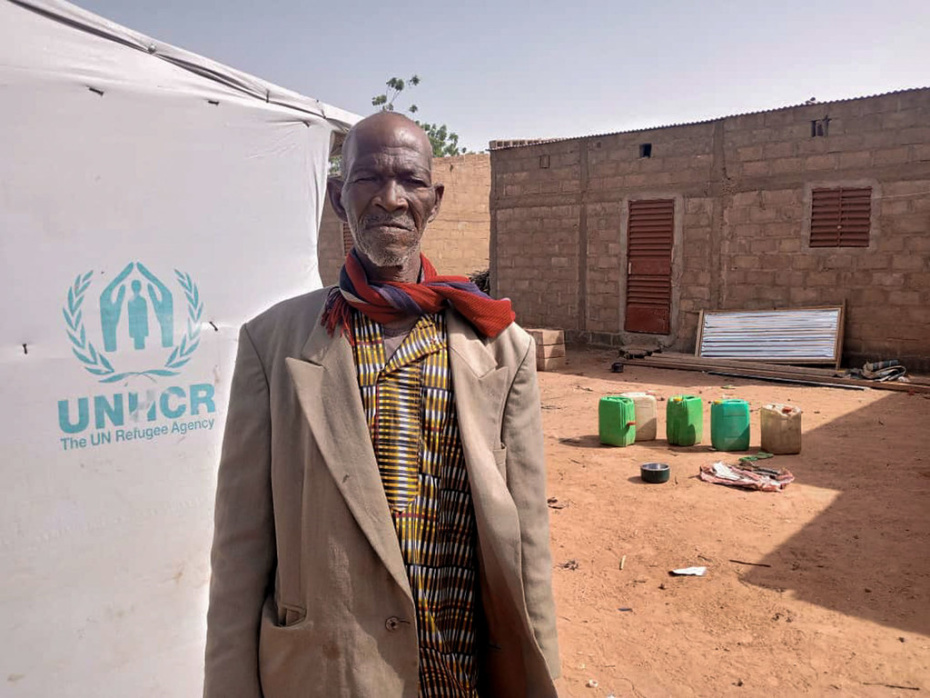First Person: Hope and shelter, amid the fighting in Burkina Faso

Recent unrest in the capital Ouagadougou surrounding the military coup, is just the latest example of instability in Burkina Faso, whose citizens have been facing turmoil for over a decade. By the end of 2021, there were over 1.5 million internally displaced people (IDPs) in the land-locked West African nation, with the country’s Centre-North and Sahel regions the worst affected.
Since November 2019, 85-year-old Lambda (not his real name), has welcomed more than 100 of his compatriots into his compound in the village of Tougouri after they fled their homes, offering them shelter, food, and even money to buy supplies.
“I worked as a cook for 45 years in the prefecture of Tougouri. With the savings I had built up, I was able to acquire several plots of land. Then I built several houses with the intention to rent them to get some income for my retirement.
I started helping displaced people as soon as they began arriving in Tougouri, in the Centre North region, in November 2019. I heard about armed men attacking and killing people in different villages, but I do not know who they were. What I know, is that many persons came here due to these attacks.
‘Pitiful situation’
When they arrived, they were in a pitiful situation that saddened me, and I provided them with shelter in my houses, free of charge, before the humanitarian workers built additional shelters in my compound for them.
There are currently more than 100 people living here: sometimes, men go to work in a mining site before coming back. The fact that these people have stayed with us for more than two years without major incidents or tension, is a source of comfort and reassures me that I made the right choice to welcome them into my home. My motto is that people come before anything else in life!

Happy to help
I am happy to help them and feel myself useful by helping others.
However, sometimes what hurts me the most is to see IDP children who do not have food without being able to help them. I've often helped them with food or money, but I must admit that it's very little.
I call for the humanitarian actors to strengthen food assistance for displaced people and to build more shelters. I do not intend to take back my houses soon, but as the saying goes "even if the child does not cry, he needs his mother". This is to say that I am under pressure as I do not get income from the houses.
Can’t give up
What is certain is that I can no longer give up, I will continue to support people in need because it is what gives meaning to my life. The reason why I helped them is that displaced persons are human beings like me, and what they are going through now can happen to me too. I couldn't bear to see them sleeping outside at the mercy of the cold and dust.
I have learned that you can get people’s recognition and respect when you help them. I am grateful for the gratitude and appreciation shown by the people who now live with us. This gives me feelings and emotions that money cannot acquire.”
UN support for displaced people in Burkina Faso
- By the end of 2021, there were over 1.5 million internally displaced people (IDPs) in Burkina Faso, with the country’s Centre-North and Sahel regions the worst affected.
- According to the National Institute of Statistics and Demographics, more than a third of the 115,000 people currently living in Tougouri are internally displaced. The rising numbers have increased pressure on already scarce resources such as land, water and social services.
- The UN refugee agency (UNHCR), together with other agencies, is supporting authorities to protect and assist displaced families, including through the strengthening of infrastructure and services in areas affected by population movements.

